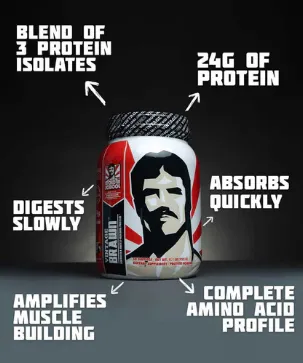Protein is necessary for bodybuilding because it is the building block of muscle tissue. When you engage in intense exercise, such as weightlifting, you create microscopic tears in your muscle fibers. In order to repair and rebuild these muscle fibers, your body needs protein.
Here are some of the best sources of protein:
Lean meats: Lean meats such as chicken, turkey, and lean beef are great sources of protein. They are also low in fat and can be cooked in a variety of ways.
Fish and seafood: Fish and seafood, such as salmon, tuna, and shrimp, are rich in protein and also contain healthy fats and omega-3 fatty acids.
Eggs: Eggs are an excellent source of protein and can be cooked in many different ways. They are also rich in vitamins and minerals.
"Super Healthy FATS! Healthy list of FATS to Consume!"
Dairy products: Dairy products, such as milk, cheese, and yogurt, are great sources of protein and also contain calcium and other important nutrients.
"Super Healthy FATS! Healthy list of FATS to Consume!"
Legumes: Legumes, such as lentils, chickpeas, and black beans, are high in protein and also contain fiber and other nutrients.
Nuts and seeds: Nuts and seeds, such as almonds, peanuts, and chia seeds, are good sources of protein and also contain healthy fats and fiber.
Soy products: Soy products, such as tofu and tempeh, are great sources of protein for vegetarians and vegans. They are also low in fat and contain other important nutrients.
"12 factors that ruin your testosterone in males"
In order to build muscle, your body needs a positive nitrogen balance, which means that you need to consume more nitrogen (from protein) than you excrete. This allows your body to use the excess nitrogen to build new muscle tissue.
It is important to consume enough protein to support muscle growth and recovery, especially if you are engaging in intense exercise such as bodybuilding. The amount of protein you need depends on factors such as your body weight, activity level, and fitness goals. It is recommended that bodybuilders consume 1.2-1.7 grams of protein per kilogram of body weight per day to support muscle growth and recovery.
There are several ways to tell if you're consuming enough protein:
Calculate your protein needs: Use a protein calculator to determine how much protein you need based on your body weight, activity level, and fitness goals. A general guideline is to consume at least 0.8 grams of protein per kilogram of body weight per day, but this may vary depending on your individual needs.
Track your protein intake: Keep a food diary or use a tracking app to track your daily protein intake. This will help you to determine whether you're meeting your protein needs or whether you need to adjust your diet.
Monitor your muscle gain: If you're engaged in bodybuilding or other muscle-building activities, monitor your muscle gain over time. If you're consistently consuming enough protein, you should see an increase in muscle mass and strength.
Check for signs of protein deficiency: Protein deficiency is rare in developed countries, but if you're not consuming enough protein, you may experience symptoms such as fatigue, weakness, and muscle loss.
Listen to your body: Your body will typically give you signals if you're not consuming enough protein. If you're feeling sluggish, weak, or not recovering well from workouts, it may be a sign that you need to increase your protein intake.
"What are the signs that you're not getting enough calories while trying to build muscle?"
Here are some common misconceptions about protein intake:
You need to consume large amounts of protein to build muscle: While protein is important for building muscle, consuming excessive amounts of protein does not necessarily lead to more muscle growth. Consuming more protein than your body needs will not result in greater muscle gains, and can even be harmful to your health.
Plant-based protein is inferior to animal-based protein: While animal-based protein sources are often considered to be "complete" proteins (meaning they contain all of the essential amino acids), plant-based protein sources can also provide all of the essential amino acids. It is possible to consume a well-rounded, plant-based diet that meets your protein needs.
Protein is only important for athletes and bodybuilders: While protein is important for muscle growth and recovery, it is also important for many other aspects of health. Protein is essential for the growth and repair of all cells in the body, and can also help to regulate hormones and enzymes.
Eating more protein is the only way to build muscle: While protein is important for building muscle, it is not the only factor. Engaging in regular strength training, getting enough rest and recovery, and consuming a well-rounded diet that includes plenty of carbohydrates and healthy fats are all important for building muscle.
Protein shakes and supplements are necessary for meeting protein needs: While protein supplements can be a convenient way to increase your protein intake, they are not necessary for meeting your protein needs. It is possible to meet your protein needs through whole food sources, such as lean meats, fish, eggs, dairy products, legumes, nuts, and seeds.





